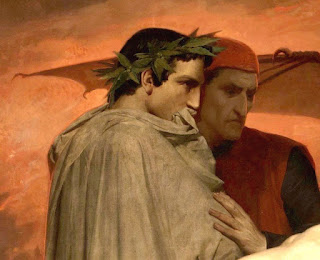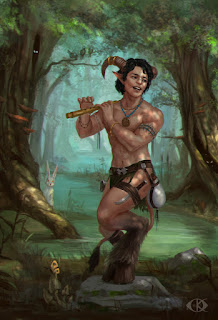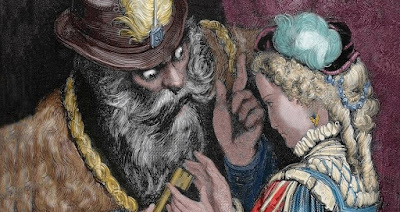Week 15 Reading Notes - Dante's Inferno A
Welcome to the first reading notes of the last week of the class! Today we're going to be discussing one of the most central works in Christian literature, Dante's Inferno. The Inferno has been the source of much Christian (or even beyond) mysticism and artwork since its creation in the Middle Ages, its longevity proving the strength of its writing and relevance to the religious mindset. One of the thoughts I had for my own storybook was to create a sampling of stories about psychopomps and liminality - those who guide you after death, and the realms between life and death. These stories have interested me heavily since I was younger, hearing stories about Charon, or the angels that guide lost souls, and the idea of Limbo and Purgatory.
Dante's imagery is what he is most well known for. His descriptions of realms beyond our own goes right in with his narrative perspective - being the person dragged through the exterior realms personally by the legendary storyteller of journies Virgil. This imagery doesn't just come from "viewing" the world around him, but from how our narrator views it and experiences it, givings us the emotion of how a place as surreal as Limbo or all of Hell could feel.
When it comes to liminal spaces, Limbo is surely one of the most interesting. Dante describes it as the lands of the virtuous non-Christians, that is, those who had no chance to take upon Christ because they simply didn't exist before him (and weren't saved in his Harrowing). Thus they are not punished, but instead live in desire knowing what they could have gone to beyond Limbo.
For my story this week, I would like to show a character/narrator experiencing a liminal space of their own, removed from extant mythologies, to explore what it might be like beyond the pale of death.
Bibliography: Dante's Inferno, Untextbook
Dante's imagery is what he is most well known for. His descriptions of realms beyond our own goes right in with his narrative perspective - being the person dragged through the exterior realms personally by the legendary storyteller of journies Virgil. This imagery doesn't just come from "viewing" the world around him, but from how our narrator views it and experiences it, givings us the emotion of how a place as surreal as Limbo or all of Hell could feel.
When it comes to liminal spaces, Limbo is surely one of the most interesting. Dante describes it as the lands of the virtuous non-Christians, that is, those who had no chance to take upon Christ because they simply didn't exist before him (and weren't saved in his Harrowing). Thus they are not punished, but instead live in desire knowing what they could have gone to beyond Limbo.
For my story this week, I would like to show a character/narrator experiencing a liminal space of their own, removed from extant mythologies, to explore what it might be like beyond the pale of death.
Bibliography: Dante's Inferno, Untextbook
 |
| Virgil and Dante |



Comments
Post a Comment